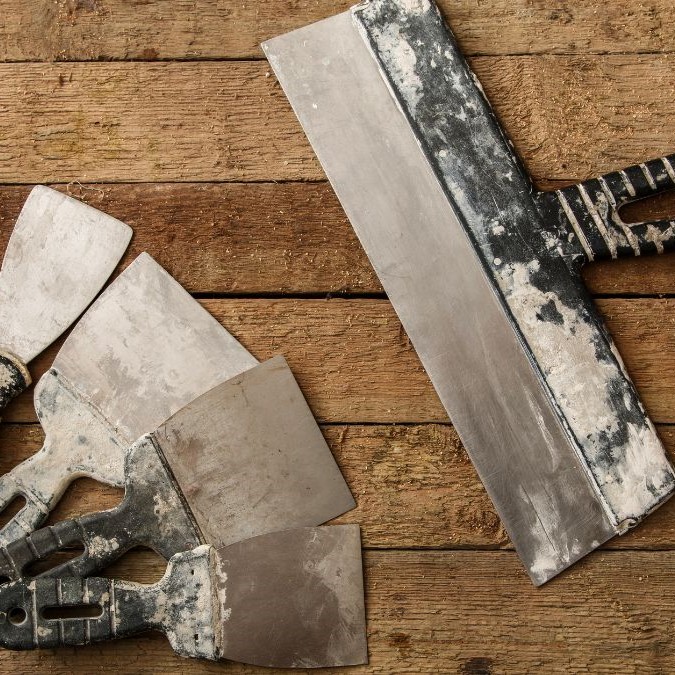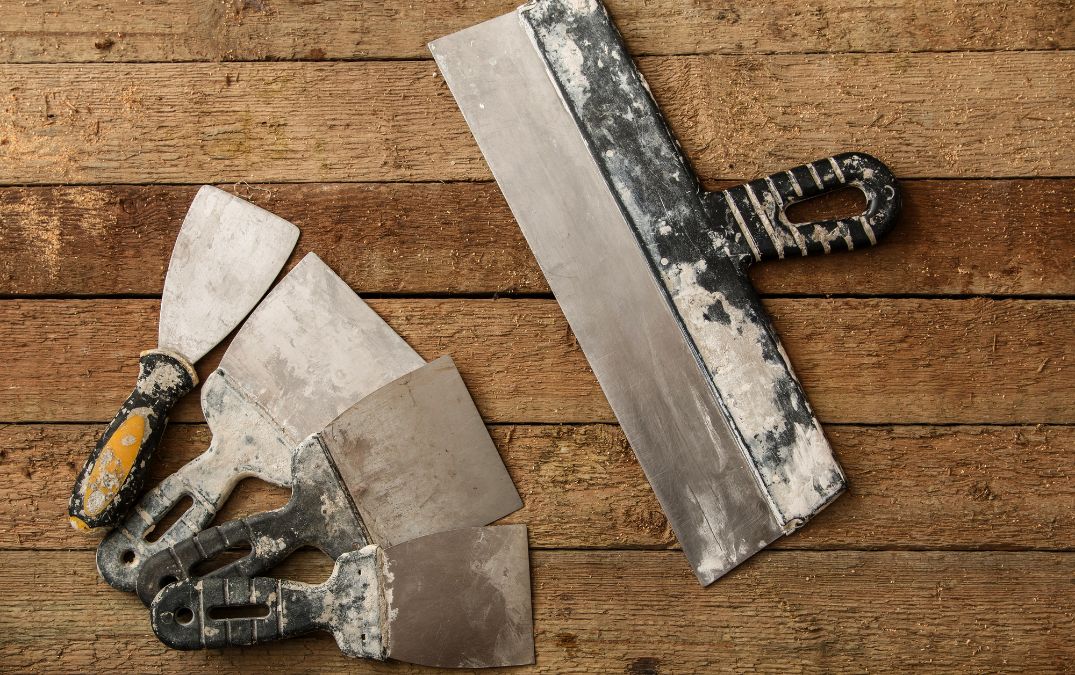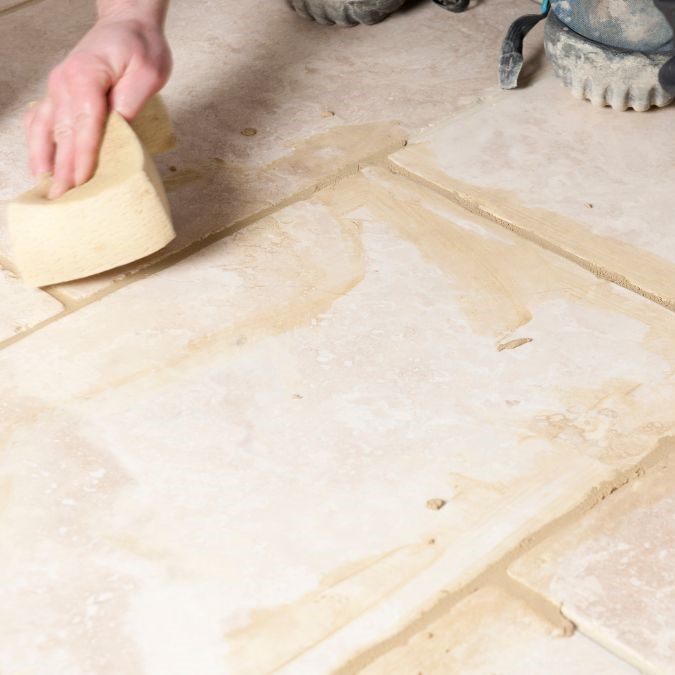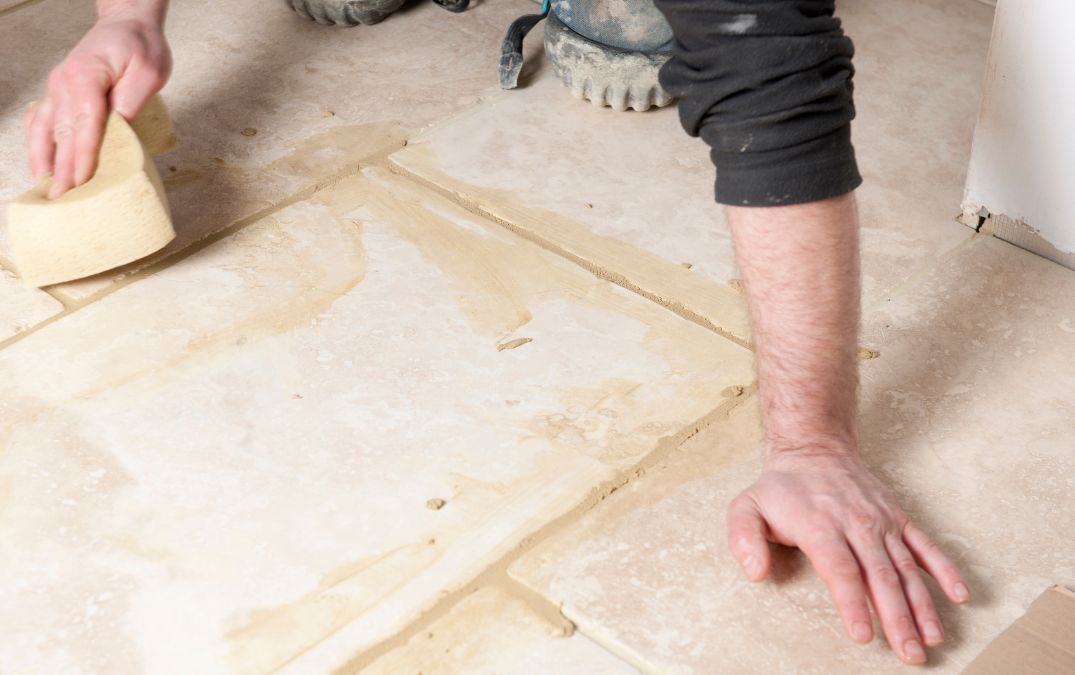Essential Tools and Materials for Cement Removal
- Chisel
- Hammer
- Putty knife or scraper
- Stiff bristled brush
- Chemical cement remover
- Bucket
- Water
- Tile cleaner
- Tile polish




Start by assessing the area with dried cement. For larger chunks, use the chisel and hammer to carefully break them up. Position the chisel at a low angle against the cement and tap it gently with the hammer. This method helps to avoid damaging the tile surface. Once you’ve broken down the larger pieces, switch to a putty knife or scraper to tackle the smaller chunks and any remaining stubborn spots.
Next, apply a chemical cement remover to the affected areas. Follow the manufacturer’s instructions for the best results. Typically, you’ll need to let the remover sit for a few minutes to soften the cement. While the chemical does its job, prepare a bucket of water for rinsing. After the appropriate waiting time, use the stiff bristled brush to scrub the softened cement. This should help lift off any residue left behind by the scraping process.
Rinse the area thoroughly with water, using a sponge to wipe away the loosened cement and chemicals. Repeat the scrubbing and rinsing as necessary until all traces of cement are gone. Keep a clean cloth handy to wipe down the tiles and check your progress. A vacuum or broom will help keep the area clear of debris as you work, ensuring you can see and access all the cement that needs removing.
Once you’ve removed all the cement, it’s time to restore the shine to your tiles. Use a tile cleaner to clean the entire area, ensuring there are no leftover chemicals or cement particles. After cleaning, apply a tile polish to give your floor a fresh, finished look. Buff the tiles with a clean cloth to bring out their natural shine.
Make sure you're switching to a putty knife or scraper for the smaller pieces and stubborn spots. These tools are less likely to cause damage, especially if you work slowly and methodically. Avoid using sharp or pointed tools directly on the tile surface, as they can easily scratch or gouge the tiles. When applying the chemical cement remover, use it sparingly and focus it only on the cement to minimise contact with the tile.
Throughout the process, it’s important to keep the area clean. Use a vacuum or broom to regularly remove dust and debris. This prevents small particles from scratching the tile surface as you work. When scrubbing the softened cement with a bristled brush, make sure to use gentle, circular motions to avoid scratching the tiles.
Always keep a bucket of water and a sponge handy for rinsing the area frequently. This helps to remove any abrasive particles and ensures that the chemical remover doesn’t sit on the tiles for too long. After the cement is removed, rinse the tiles thoroughly to get rid of any residual chemicals that could potentially cause damage over time.


Unlike ceramic or porcelain tiles, cement tiles are handmade, giving each one a unique, artisanal quality. The colours and patterns in cement tiles are integral to the tile itself, so they won’t fade or wear off over time. This makes them a long lasting option compared to other tiles, which might need replacing or refinishing after years of use.
Cement tiles also offer a level of customisation that’s hard to match. This is a significant advantage over other flooring options like vinyl or laminate, which tend to have more limited design choices. If you want something truly unique that reflects your personal style, cement tiles are a fantastic choice.
In terms of durability, cement tiles hold their own against other high end options like natural stone. They’re incredibly tough and can withstand heavy foot traffic, making them suitable for both residential and commercial spaces. While natural stone is also durable, it often comes with a higher price tag and requires more maintenance to keep it looking its best. Cement tiles, on the other hand, are relatively low maintenance. With periodic sealing, they resist stains and hold up well over time.
Cost wise, cement tiles sit somewhere between standard ceramic tiles and high end stone or hardwood flooring, though they’re more expensive than basic tile options but offer a unique look and durability that justify the price. Plus, their longevity means you won’t need to replace them as often, potentially saving money in the long run.
Our team of experts is ready to transform your room with precision and craftsmanship. Don't settle for ordinary when you can have exceptional. Contact us now for concrete flooring in the UK by emailing us at info@britishconcretepolishing.co.uk or by filling in the form below and our team will get back to you shortly.